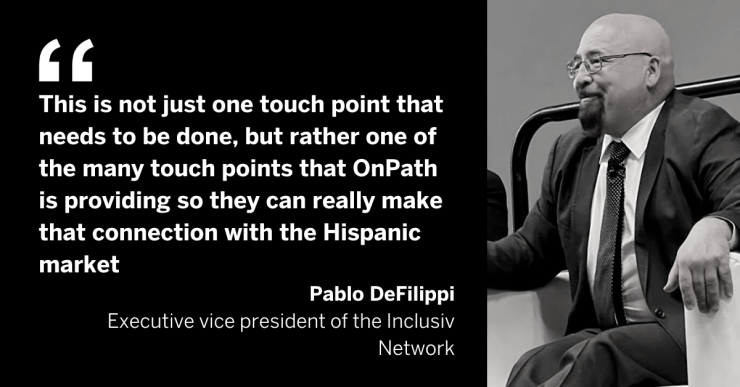
OnPath Federal Credit Union in Metairie, Louisiana, has rolled out a Spanish-language website that it says takes aim at a key obstacle to growth.
The $620 million-asset OnPath officially debuted the microsite on July 19, offering a fully-translated version of the credit union's main website to help break down language barriers and improve access to products for underserved communities in the New Orleans market. It enlisted the help of Spanish-speaking personnel to ensure accurate phrasing and terminology.
OnPath has been mulling the idea for two years but didn't have sufficient resources to develop the platform until recently, President and CEO Jared Freeman said.
"We have a fast-growing Hispanic population in the greater New Orleans area, and so we wanted to provide all the same services and products that we brought all of our members in a way that was a little bit more inclusive for the native Spanish-speaking individuals," Freeman said.
The credit union is in the early stages of opening a branch in the city of Kenner to be fully staffed by bilingual representatives, and it's eyeing tailored auto loans for members who only possess an Individual Taxpayer Identification Number, or ITIN.
Freeman said that despite Spanish-speaking consumers only accounting for roughly 15% of its overall membership, executives at OnPath have always prioritized diversity, equity and inclusion throughout each aspect of their business plans as "inclusivity has sort of always been behind the heart and mission" of the credit union.
National trade organizations working to advance Hispanic inclusion across the industry — and the U.S. — are working alongside institutions like OnPath to build support networks that help executives find grant funding and offer advice on DEI-focused campaigns.
As the sole Juntos Avanzamos-designated credit union in Louisiana, OnPath is setting the bar for how financial institutions can effectively serve minority communities, said Pablo DeFilippi, executive vice president of the Inclusiv Network.

"The significance of this [microsite] is sending a strong signal to the community that we are building our capabilities to meet your needs where you are. … This is not just one touch point that needs to be done, but rather one of the many touch points that OnPath is providing so they can really make that connection with the Hispanic market," DeFilippi said.
DeFilippi highlighted that even with the added tech solutions, personal interactions with members are more effective for communications.
"There's a lot of excitement about fintechs solving some of these gaps in the marketplace, but it's been clear to me that there's no technology that can replace the trust-building that comes with actually being involved in the community," DeFilippi said.
Examples of other institutions adapting to such changes include the $830 million-asset
As attractive as these campaigns are, executives need to be wary of how they are implemented to avoid alienating the very consumers they hope to embrace, according to Barbara Mojica, executive director of the NLCUP.
When her family came to the U.S. in 2000, Mojica witnessed firsthand the exclusion from financial security her young parents faced as non-English speaking immigrants growing up in rural North Carolina. Even with the nearest bank being 30 minutes away, employees could only speak English — forcing her parents to keep all their cash on hand.
"I often think back to that time in my life and wonder what if there was a credit union there that could have helped them. … Would we have gotten out of poverty faster and would I have had better opportunities when it came to schooling activities?" Mojica said.
Now in her current leadership role, she underscored the importance of going beyond simply making loans or selling other products to also prioritize services that help build generational wealth and knowledge.
"My mission in life here is to help my community, so I want to say it will work. … I just want to make sure they're thinking outside the box here, and that they're not going to exclude people like me," Mojica said.






